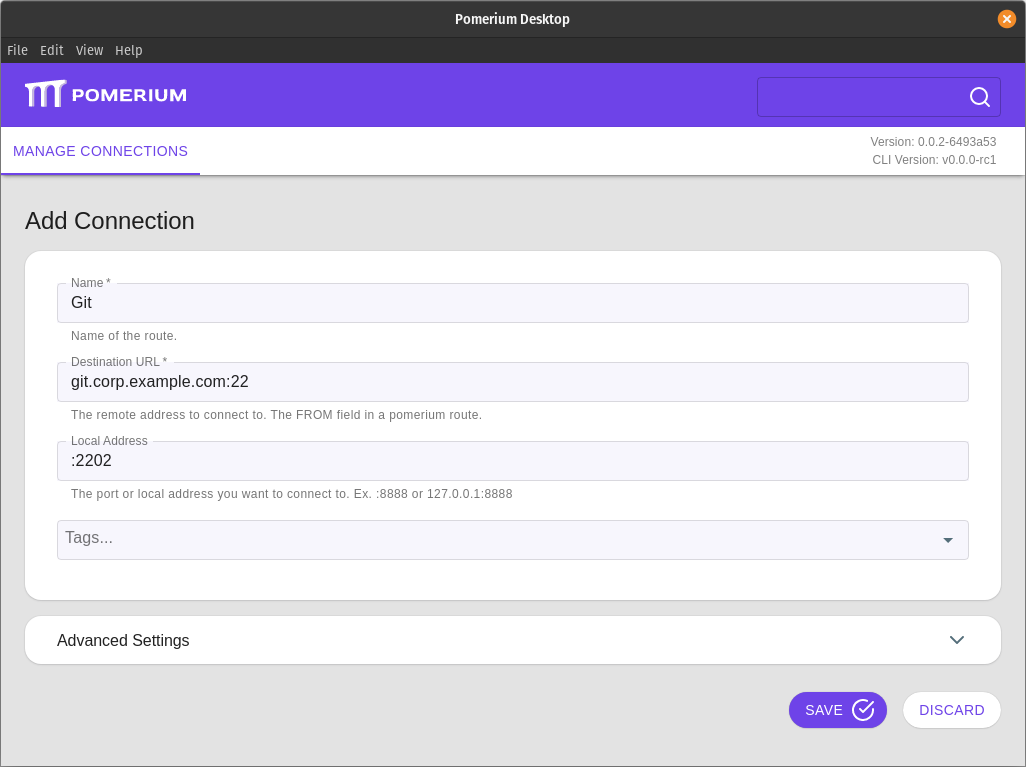# Tunneled Git Connections
When hosting a self-hosted Git server like GitLab behind Pomerium, you can protect desktop client access to the source code with the same identity-aware access as the web interface using an encrypted TCP tunnel.
TIP
This example assumes you've already created a TCP route for this service.
# Basic Connection
Create a TCP tunnel, using either
pomerium-clior the Pomerium Desktop client. These examples use Git connections over SSH:Clone the repository using the tunneled connection as a remote:
git clone ssh://git@127.0.0.1:2202/username/project-name
Now when you first initiate a pull, push, or fetch command your web browser will open to authenticate and authorize the connection.
# Always Tunnel through Pomerium
Because Git uses the SSH protocol, we can define a Host block in our local SSH configuration file to initiate the tunneled connection whenever it's needed.
Open your local SSH configuration file at
~/.ssh/configand add a new Hostsblock:Host git-tunnel HostName git.corp.example.com User git ProxyCommand pomerium-cli tcp --listen - %h:%pFor each repository, clone using this host:
git clone git@git-tunnel:userName/projectName
TIP
If you've already defined an SSH configuration for all domains managed by Pomerium as described in our SSH Example, you can skip the first step above and define your new remote with the Git server's domain name.

